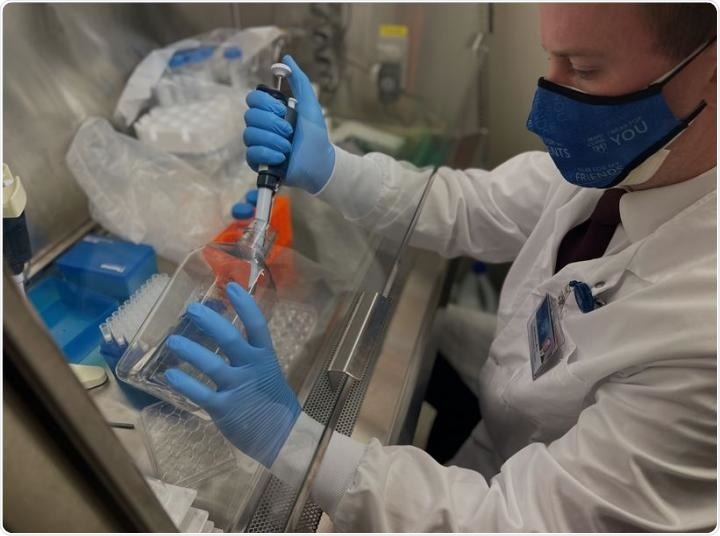According to a recent study from the Mayo Clinic in Rochester, Minnesota, people who self-report daytime sleepiness have shorter telomeres irrespective of whether they have obstructive sleep apnea.

Joshua Bock, PhD, studies samples in the lab at the Mayo Clinic in Minnesota. Image Credit: Joshua Bock.
The results of the study will be discussed virtually at the annual meeting of the American Physiological Society (APS) at Experimental Biology 2021.
Telomeres shield DNA from biological stressors, and shortened telomeres have been linked to a variety of cardiovascular diseases, the researchers note.
This research discovered that people who reported daytime sleepiness had comparable telomere length to those who did not. however, obstructive sleep apnea impacts telomere length and was more common in the sleepy population.
When the researchers compared individuals between groups based on the prevalence of sleep apnea, apart from other factors (for example, weight, age), they discovered that sleepy people who did not have sleep apnea had shorter telomeres than those who did.
Furthermore, no variations in telomere length were observed between non-sleepy and sleepy persons with sleep apnea. Essentially, the research revealed that daytime sleepiness was associated with telomere shortening in the absence of sleep apnea.
The researchers expect that further research could enable a reduction in the incidence of telomere shortening or reverse it completely, which may lower cardiovascular risk in people who experience daytime sleepiness.